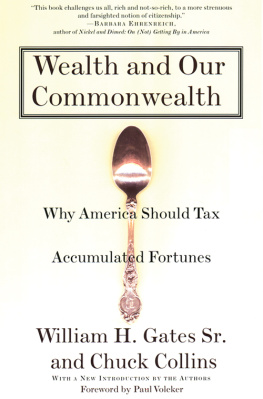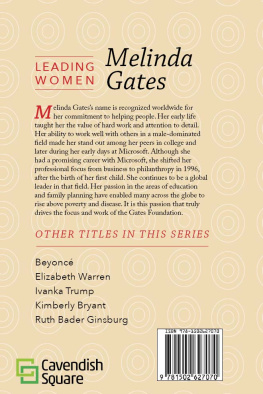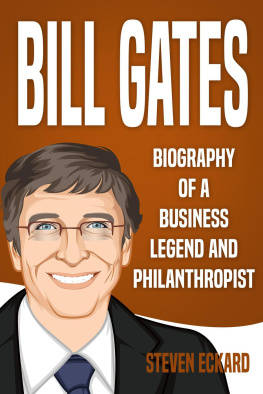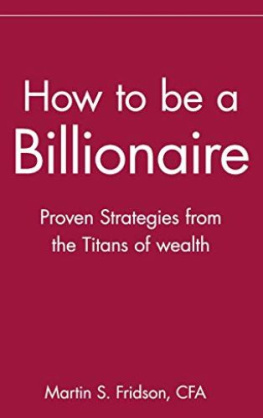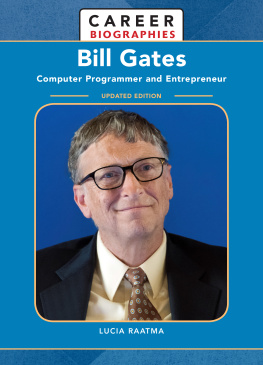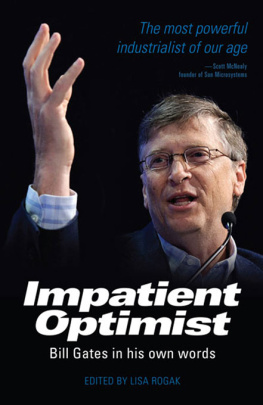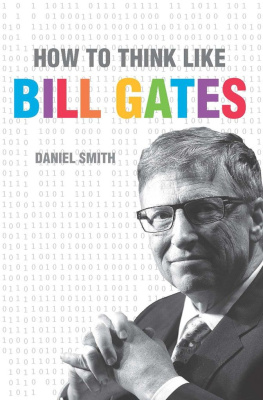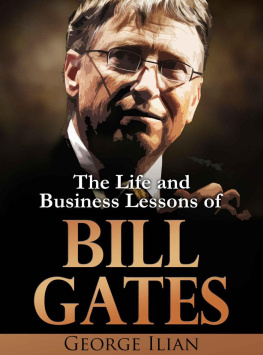
To Bill Gates III, my son, whose hard work and generosity made estate taxation relevant to me; and to Kristi Blake and Libby Armintrout, my daughters, who are understanding about my wanting the United States to share in their inheritance. W. H. G. Sr.
To Edward J. Collins, my father, for his gifts of love and curiosity. C. C.
CONTENTS
PROLOGUE TO THE PAPERBACK EDITION
As we go to press with this paperback edition of Wealth and OurCommonwealth, almost every state in the union has plunged into its worst budget crisis since World War II.
As a result, localities are laying off teachers, fire fighters, police officers, and social workers; closing libraries and health clinics; cutting childcare, mental health services, public transit, and pollution control; raising public-college tuition and reducing financial aid; and letting schools, playgrounds, roads, and bridges go unrepaired. Oregon has shortened its school year by three weeks. Tennessee is removing 200,000 residents from medical coverage, most of them children. The list goes on and on.
The stories emerging each day from the states stir a deeper question, one that we explore in this book: What kind of society do we want to become?
Currently, federal budget deficits are climbing and will exceed $400 billion a year for the foreseeable future. The costs of national security are unforeseeable, but are likely to increase.
Yet what has been Congresss response? Has there been serious debate over sending a $100 billion aid package to the states? No. As if the stunning disconnect between the halls of Congress and the financial dire straits of localities was not disturbing enough, in May 2003, Congress passed an additional $330 billion tax cut. Two weeks later, the House of Representatives voted to make repeal of the federal estate tax permanent. Congressional tax cutters have announced their intention of waging a permanent tax cut offensive with a long list of additional tax cuts they intend to bring up.
Permanent estate tax repeal is an issue that borders on obsession in some quarters of Congress. Under the leadership of Senator Bill Frist, the Senate announced that permanent repeal was number eight in their list of top ten priorities for the 108th Congress. It ranked higher than Preparedness for Biological Attack.
In March 2003, we witnessed a historically unprecedented push for tax cuts targeted to the wealthy during a time of war. On the same evening that U.S. jets prepared to attack Iraq, Senator Jon Kyl (R-AZ) offered an amendment to the federal budget to accelerate repeal of the estate tax by a year. It passed by a narrow vote of 51 to 48, but it was not included in the final budget bill.
There was something unseemly about Congresss obsession with repealing the estate taxthe nations most equitable tax on accumulated wealthduring a time of war. As we discuss within the text, the American history of estate and inheritance taxes is wound together with mobilizations for war. But historically, wealth has been conscripted during times of emergency. Never before have we seen a push for a windfall tax cut for the wealthy on the eve of an attack, as unforeseeable wartime expenses mount.
States are choosing to be more pragmatic than the federal government. More than eighteen states have decided to retain some version of their estate or inheritance taxes, preserving revenue that is badly needed. While this is a necessity, it is also unfortunate to see the emergence of a patchwork of different laws and regulations across the country. We miss the simplicity and seamlessness of the pre-2001 estate tax law that enabled states to piggy-back on the federal estate tax.
These conditions make the present choice even more stark: Is this a morally appropriate time to divert $ 1 trillion in revenue over the next two decades to provide tax breaks for multimillionaires and billionaires? We dont think so.
Are we engaging in the politics of class warfare, resentment, and envy? In advocating for a reformed federal estate tax, we have no aim to punish, denigrate, or discriminate against those who have accumulated great wealth in America. Rather, we celebrate both individual achievement and an economic system that has provided such a fertile ground for wealth creation.
Kudos to those who have worked hard and creatively and have made sacrifices enabling them to accrue wealth. Their efforts should be rewarded. But we should not lose sight of a simple fact in this accounting: If these same individuals had attempted to launch their enterprises in almost any other country, they would not be as wealthy today. Americans who possess great wealth have a special obligation to pay back a debt to society.
We live in a society with an economy that has enabled a wide variety of people to attain wealth and comfort. And those who accumulate great wealth$10 million, $50 million, $500 million, and moreare people who have benefited disproportionately from the system of public investment that we together, as taxpayers and givers to charity, have put in place in our society.
The United States has a remarkable public and civic infrastructure for the creation of wealth. Most of us inherit a society enhanced by public investments that have been made over the centuries. We have a robust economy precisely because we have order, stability, a predictable system of rules for investing, and mechanisms to resolve disputes. We have confidence that the rules today will be the same one year from now and one year after that. And we have a skilled work force, thanks to our substantial investment in public education and infrastructure.
As taxpayers, we should take pride in the fact that the U.S. government is the largest venture capitalist in the world, providing equity to our fine research and higher education institutions. Economists agree that over the past fifty years up to 50 percent of growth in our economy can be attributed to advances in technology. Without that investment, there would be no Internet, no human genome research, and few medical wonder drugs. We should not underestimate the role of this research in creating the bedrock for wealth creation and the quality of life we enjoy.
Preserving the estate tax will ensure that our society values the inherent worth of the individualrather than the inherited worth. What strengthens our country are the investments we make together in equality of opportunity so that the rules of the economy work more or less the same for everyone. We all succeed when children are born without vast disparities in access to education, health care, and opportunity. We are weakened when our policymakers are more concerned with preserving existing concentrations of wealth and power rather than creating avenues for new asset creation and opportunity.
Our country is healthy to the extent that we have broad ownership of property and enterprise. We should do everything we can to ensure an expansive ownership of wealth, through homeownership loans, access to education, and incentives for saving nest eggs. But we must be vigilant when great accumulations of wealth lead to concentrations of power.
Whats wrong with society claiming half of the wealth of those who accumulate $20 million or $500 million as the return on the many investments from our marvelous system? What is it worth to be an American?
We remain optimistic that we can turn this debate around and stop all-out estate tax repeal from happening. A few more years of congressional gridlock will open doors and minds about the necessity for meaningful reform, but not repeal.

